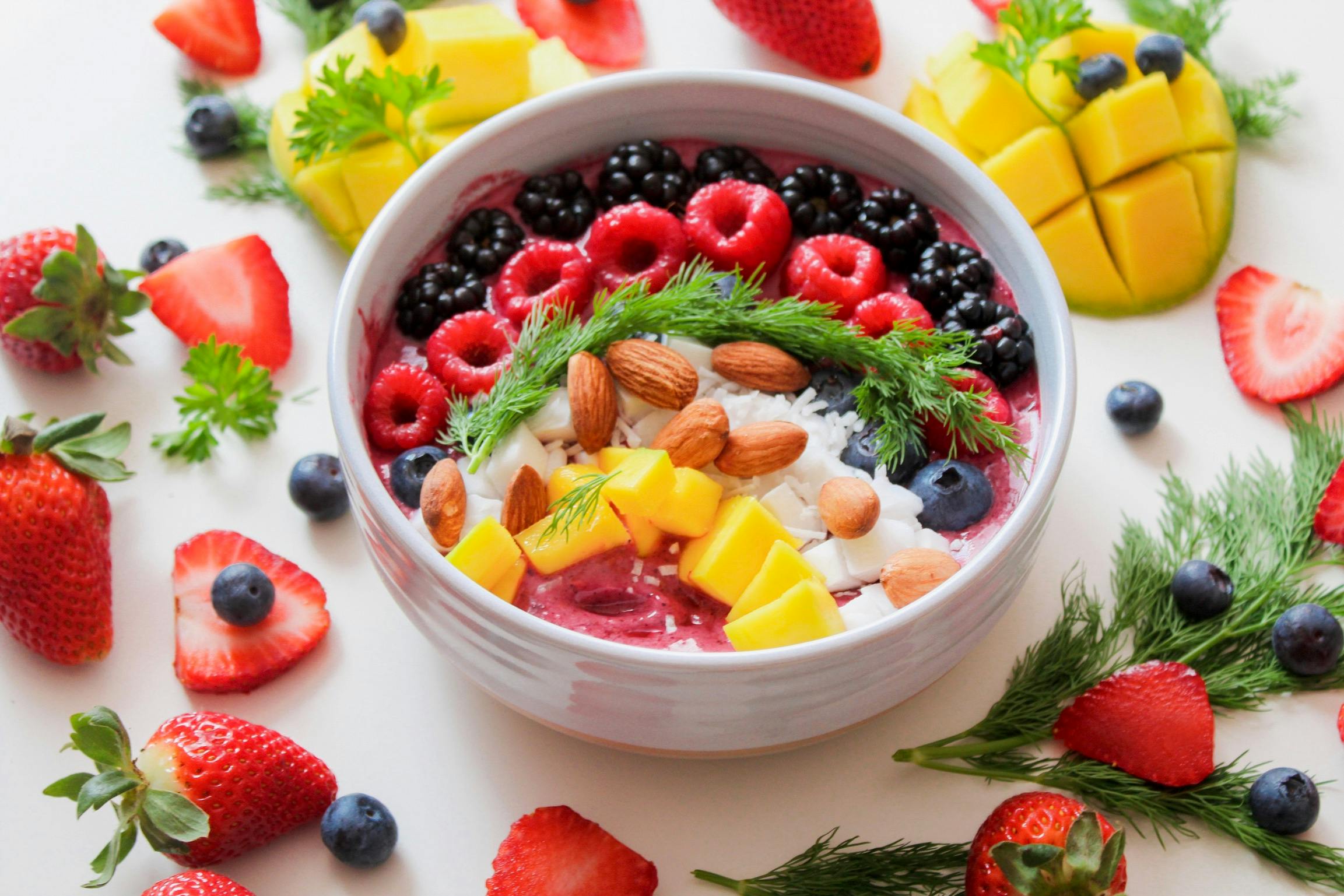The foundation of good health lies in the food choices we make daily. Incorporating nutrient-dense foods into your meals can significantly enhance your physical and mental well-being, helping you feel more energized, resilient, and vibrant.
Below are five of the most nutrient-packed foods you can include in your diet to support overall health and vitality.
1. Dark Leafy Greens (Spinach, Kale, Chard)
Dark green vegetables such as spinach, kale, and Swiss chard are loaded with essential nutrients. These vegetables are rich sources of vitamins A, C, and K, as well as folate, iron, fiber, and calcium. They also offer an impressive dose of antioxidants that help protect your body’s cells from damage and reduce inflammation.
Key Benefits:
-Promote strong bones thanks to vitamin K and calcium
-Support immune function and skin health with vitamin A and C
-Aid digestion and gut health with natural fiber
-Help combat oxidative stress through antioxidants like lutein
Easy Ways to Add Them:
-Toss a handful of baby spinach into smoothies or omelets
-Use kale as a base for hearty salads or soups
-Stir Swiss chard into stews or pasta dishes for added texture
Incorporating a variety of leafy greens each day ensures a broad spectrum of vitamins and minerals.
2. Oily Fish (Salmon, Mackerel, Sardines)
Oily or fatty fish like salmon, mackerel, and sardines are among the richest sources of omega-3 fatty acids, which are vital for heart and brain health. These fish also supply lean protein, vitamin D, and B-complex vitamins, all of which contribute to a strong immune system and balanced metabolism.
Why They’re Great:
-Help lower inflammation and reduce the risk of chronic diseases
-Improve cognitive function and emotional well-being
-Contribute to heart health by maintaining healthy cholesterol levels
-Provide protein for muscle maintenance and repair
How to Enjoy:
-Bake or grill salmon with herbs and lemon for a quick dinner
-Add canned sardines to salads or whole-grain crackers
-Use mackerel in sandwiches or rice bowls for a flavorful protein boost
Aim to eat fatty fish twice a week to take full advantage of its health-promoting properties.
3. Berries (Blueberries, Raspberries, Strawberries)
Despite their small size, berries are full of antioxidants, fiber, and vitamins that support everything from your brain to your skin. Blueberries, in particular, are known for their ability to enhance memory and cognitive performance, while raspberries and strawberries offer immune-boosting vitamin C and heart-healthy polyphenols.
Health Perks:
-Support brain health and memory retention
-Strengthen the immune system
-Improve gut health through high fiber content
Contribute to healthy aging by reducing oxidative damage
Simple Serving Ideas:
-Mix berries into yogurt or oatmeal for a nutritious breakfast
-Add them to smoothies or homemade energy bars
-Snack on them fresh or use them to sweeten healthy desserts
Berries are naturally sweet and low in calories, making them a perfect daily addition to any diet.
4. Eggs
Eggs are often referred to as nature’s multivitamin. Each egg contains a wealth of nutrients, including high-quality protein, vitamin B12, selenium, choline, and vitamin D. The yolk holds most of the nutrients, including choline, a key compound for brain development and liver health.
Nutritional Highlights:
-Keep you feeling full longer, aiding in weight control
-Supply complete protein to support tissue repair
-Improve eye health with lutein and zeaxanthin
-Offer brain-boosting nutrients like choline
Easy Preparation:
-Hard-boil eggs for a quick, high-protein snack
-Make scrambled eggs with vegetables for a satisfying breakfast
-Include eggs in muffins or baked dishes for added nutrition
Don’t be afraid of the yolk as it contains the majority of the egg’s benefits!
5. Nuts and Seeds (Almonds, Walnuts, Chia, Flaxseeds)
Nuts and seeds are compact sources of healthy fats, plant-based protein, fiber, and essential minerals like magnesium, zinc, and vitamin E. Almonds, walnuts, chia seeds, and flaxseeds are some of the most nutrient-rich options, offering support for heart health, brain function, and digestion.
Benefits at a Glance:
-Encourage heart health by lowering LDL cholesterol
-Promote brain clarity and reduce mood swings
-Assist with blood sugar regulation
-Provide skin and hair support through essential fatty acids
Delicious Ways to Eat Them:
-Sprinkle flax or chia seeds into smoothies or baked goods
-Add almonds or walnuts to salads and yogurt
-Create homemade energy bites using dates, seeds, and nut butter
Because they are calorie-dense, it’s best to enjoy nuts and seeds in moderation a small handful a day is plenty.
Tips for Including More Nutrient-Dense Foods
Making your meals healthier doesn’t have to be complicated. A few simple strategies can make it easier to get the most out of your food:
-Plan ahead: Pre-wash greens, portion out snacks, and prep protein-rich meals in advance.
-Shop smart: Keep essentials like eggs, berries, and canned salmon stocked at home.
-Balance your plate: Aim to include protein, fiber, and healthy fats in each meal.
-Make swaps: Choose berries over processed sweets, or eggs over sugary breakfast cereals.
These small, consistent changes add up to long-term benefits.
Conclusion
Focusing on nutrient-rich foods is a sustainable and impactful way to improve your health. Unlike trendy diets or supplements, these whole foods provide your body with everything it needs to function at its best from protecting your heart and brain to supporting your immune system and digestion.
The good news? These powerhouse ingredients like leafy greens, fatty fish, berries, eggs, and nuts and seeds are not only incredibly nutritious but also versatile, affordable, and delicious.
By making them a regular part of your meals, you’re investing in better energy, greater resilience, and long-lasting well-being, one bite at a time.



